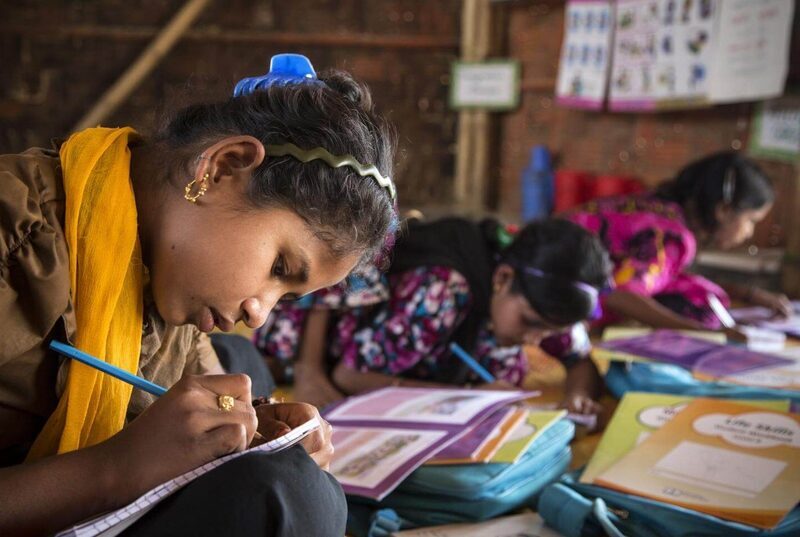
EU adopts new rules to significantly cut packaging waste with re-use targets
The European Union has formally adopted a regulation on packaging and packaging waste. The new ...

UNESCO estimates that 11 million girls may not return to school over the COVID-19 pandemic and its unprecedented disruption to education.
Marking International Women’s day, UNESCO unveils new data in a factsheet on girls’ education. The data is published as part of the #HerEducationOurFuture initiative, which aims to accelerate action for girls’ and women’s education by leveraging political and financial commitments, as well as leadership for women and girls.
Girls aged 12-17 are at particular risk of dropping out of school in low and lower-income countries, whereas boys are more at risk in upper-middle and high-income countries.
Before COVID-19, there was already a long way to reach gender equality in and through education. In 10 countries around the world (Benin, Cameroon, Guinea, Haiti, Mali, Nigeria, Pakistan, Papua New Guinea, Senegal and Timor-Leste), the poorest girls spend less than 2 years in school on average. In Guinea, Mali and Pakistan over 80% of poor girls have spent only two years or less in school.
According to the Gender Report of the Global Education Monitoring Report (GEM), however, in the past 25 years, 180 million more girls have enrolled in primary and secondary education since the Beijing Declaration and Platform for Action, a landmark commitment to advance the rights of girls and women made in 1995 by 189 countries. These gains are now threatened by the COVID-19 pandemic.
Investments toward education are also being affected. Of 29 countries surveyed across all regions, two-thirds of low- and lower-middle-income countries, have cut their education budgets since the onset of the COVID-19 pandemic. Only a third of upper-middle and high-income countries have reduced their budgets. These budget cuts are likely to adversely affect girls’ enrolment.
A failure to prioritize the needs of women and girls in COVID-19 responses risks further entrenching disadvantages. To remedy this, UNESCO’s Global Education Coalition’s Gender Flagship developed a Girls back to school guide to facilitate a safe and gender responsive reopening of schools, and meeting the needs of the most marginalized girls. The guide contains detailed recommendations to support learning, health, nutrition and water, sanitation and hygiene (WASH), protection and teachers. A campaign, Keeping girls in the picture, is also promoting girls’ continuity of learning and their safe return to school.
At the peak of the pandemic in April 2020, schooling was disrupted for over 1.5 billion learners in more than 190 countries.
The European Union has formally adopted a regulation on packaging and packaging waste. The new ...
Inaugurating the Abydos Solar Power Plant in the Upper Egypt governorate of Aswan represents a ...
Businesses that fail to adapt to climate risks like extreme heat could lose up to ...


اترك تعليقا